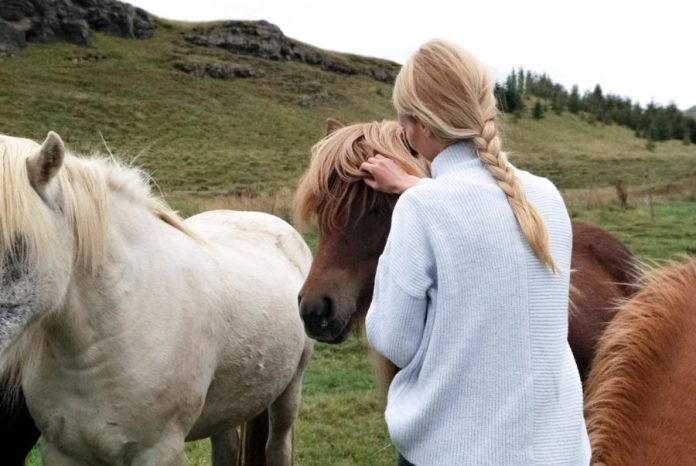
So, if for whatever reason you’ve ended up at the racetrack (or maybe on a betting site), but you are not really a horse racing fan, you might think that everyone around you is speaking a different language.
Horses are “breaking from the gate,” jockeys are “urging” their mounts, your friend bet on a “quinella box,” and the horse “won by a nose.” If you are someone who is unfamiliar with the sport, the horse racing lingo might make you think that this is an overly complicated sport, which is not the case.
Horse racing lingo is weirdly specific and kind of old-school, like the sport. Although it sometimes sounds like pirate talk, once you get the hang of it, it all starts to make sense. On top of that, it will make watching races more fun and betting more profitable, since you’ll know what you are betting on.
So, let’s break down some of the basics without making your brain go crazy.
Let’s Start By Learning Some Race Day Terms
Post
Nope, this is not mail. The “post” often refers to the starting point of the race. So, when you hear “post time‘ that means that the race is about to start and you need to get those bets closed as fast as possible and get to the grandstand to watch the race.
Furlong
This is probably the weirdest-sounding word you’ll ever hear in the horse racing jargon. Actually, scratch that, we have quinella. But furlong is a very important word in the horse racing industry. A furlong is ⅛ of a mile. So a six-furlong race is ¾ of a mile. Don’t overthink it, just remember that most sprint races are between 5 and 7 furlongs.
Paddock
This is a place where the horses are hand out before the race, getting saddled and ready for the action. It’s like a red carpet for horses.
Post Parade
You might figure out this term by yourself because it’s self-explanatory. Post parade is when the horses are walking out to the track before the race starts. This is your first warning to make up your mind on which horse you’ll place your money on.
Know Your Horse Talk
Maiden
No, not a princess. A maiden is a horse that hasn’t won a race yet. So if you’re watching a “maiden race,” all the horses are winless and still trying to break that unlucky streak.
Colt, Filly, Gelding, Mare
Horse gender terms are oddly formal:
- Colt – Young male horse (under 4 years)
- Filly – Young female horse (also under 4)
- Gelding – Castrated male horse (yep, that happened)
- Mare – Adult female horse (4 years and up)
Knowing this doesn’t help your betting odds, but you’ll sound a lot cooler yelling at the screen.
Front-runner vs. Closer
A front-runner likes to take the lead early and hold it. A closer hangs back and charges at the end like a caffeinated freight train. If a race is short, front-runners usually have the edge. In longer races, closers can surprise you at the wire.
Betting Terms
Win, Place, Show
The holy trinity of basic bets:
- Win – Your horse has to finish 1st.
- Place – 1st or 2nd.
- Show – 1st, 2nd, or 3rd.
Want to play it safe? Bet to “show.” Want bragging rights and bigger returns? Bet to win.
Exacta
You’re predicting the 1st and 2nd place horses in exact order. Think you can do that? Welcome to the high-stakes crowd.
Quinella
You’re picking two horses to finish 1st and 2nd, in any order. Basically an easier exacta, but with a smaller payout. Safe but still spicy.
Trifecta / Superfecta
- Trifecta: You call the top 3 horses in order.
- Superfecta: Top 4. In order. Yep—this is expert mode.
Box
If you “box” a trifecta or exacta, you don’t have to pick the order. It costs more, but gives you better chances. So, a “trifecta box” means your 3 horses can finish 1st, 2nd, and 3rd in any order and you still win.
If you are really into betting, you should also learn more about how to read horse racing odds on the link here: twinspires.com/betting-guides/what-do-horse-racing-odds-mean/
Bonus Jargon That’ll Make You Sound Like a Pro
Handicap Race
A race where horses carry different weights to level the playing field. The faster horses carry more weight. Basically, the racing version of “let’s give everyone a fair shot.”
Claiming Race
These are races where horses are basically up for sale. Yes, mid-race. Owners can “claim” (aka buy) a horse before the race starts.
Breaking from the Gate
When the horses leave the starting gate. A horse that “broke well” had a good start. One that “broke poorly” might still be trying to figure out where it is.
On the Rail / Wide Trip
The “rail” is the inside lane. A good spot—shortest distance. A “wide trip” means the horse had to run around others, often adding extra ground. Think of it like being forced to take the long way around a crowded supermarket.
You don’t need to memorize a horse racing dictionary to enjoy a day at the track. Also, after a few races, you’ll be more familiar with these horse racing terms, so take it easy and don’t stress yourself out.

